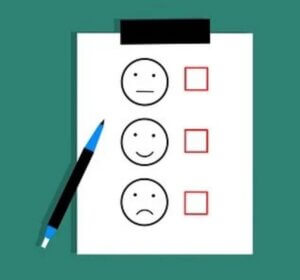19 Jan Want to be a better, happier human in 2021? Let yourself be sad

Today’s edition of The Microscope features insights from Jeannette Maré. Jeannette was the keynote speaker at the inaugural SUDC Foundation Family Day in September of 2020. This piece was adapted from a piece that was orignally published in Quartz on January 3, 2016.
Whether you’re in the one third of Americans who actually make a formal New Year’s resolution or not, here is one way to be a better, kinder human, this year: embrace sadness.
It will also make you happier.
Americans love happiness. It’s front and center in the Declaration of Independence, after all. But nowhere in the Declaration of Independence does it say that the pursuit of happiness depends on the defeat of sadness. In fact, the resistance of sadness and the shame that surrounds sadness increases suffering. And it’s suffering that reduces our feelings of peace, contentment, and happiness, not sadness.
Sadness has a lot to teach us if we’re brave enough to let it in. When we do, we find the compassion for ourselves and others that motivates kindness and creates strong bonds. And research shows it’s those strong social bonds that lead to happiness. In other words, happiness grows from sadness—when it’s socially supported.
Here’s where we often mess up. Our first reaction to sadness in ourselves and others is an attempt to do away with it. From that first, “Awww, don’t be sad” uttered to a crying baby to the many “turn that frown upside down”-like phrases to the ubiquitous “be happy, be positive” movement, our culture is anti-sadness. It’s come to the point where feeling a little blue is enough to bring on feelings of inadequacy and shame.
And sadness + shame = suffering.
Friends unintentionally cause suffering when they try to “fix” your sadness, or worse, when they act like a “bliss ninny.” I learned that label from my mom and love it. Bliss ninnies are the ones who put a silver lining around every situation. When you’re hurting, a bliss ninny will start sentences with ‘at least’ and ‘you should’. Their intentions are good but what they’re actually doing is denying your sadness. Enter shame, followed by suffering.
It’s time for a culture shift. 2021 is the year we push back on unrealistic optimism and learn to directly engage with the difficulty at hand in a meaningful way. We need to do this as individuals, families, communities and nations. We need to learn to feel sadness and to allow sadness to motivate us to be kinder so that we will take better care of each other. It is in that kindness that we’ll experience greater happiness. And we need sadness to get us there.
Here are 5 ways we can do better with sadness:
1) Resist trying to cheer a sad person up. Sadness is an important and normal human emotion.
2) As a supportive friend, your job is not to reduce your loved one’s sadness, but rather to reduce their suffering. When you demonstrate to your friend that they can trust you with their sadness (that you’re not going to try to “fix” them), you lessen their suffering.
3) Admit to not knowing what to do or say. A humble, “I don’t know if there is anything I can do to support you but I’m here” goes a long way. If you can come up with something helpful to do for them, ask if you can do it and follow through.
4) Listen and listen some more.
5) Ask if it’s OK if you check in on them. “Call me if you need anything” puts the onus on the sad person and they don’t need the extra responsibility of orchestrating their own grief support. Keep checking in on them.
Kindness takes practice, and accepting sadness is a kindness skill that, when honed, helps create and reinforce the bonds that are necessary for happiness.
So, if you want 2021 to be a happier year, embrace the sadness.
Jeannette Maré is a communication scholar, currently pursuing her Ph.D., who has been teaching kindness for over 20 years. Her world changed drastically after the sudden death of her son in 2002. In the incredible grief of losing Ben, the life-saving, world-changing power of kindness became her sole focus. With her heart broken open, she founded Ben’s Bells, a nonprofit that inspires and teaches the intentional practice of kindness. Using humor and storytelling, Jeannette helps people learn the skills they need to put their kind intention into action to strengthen relationships and communities.


